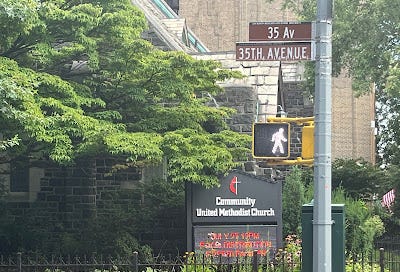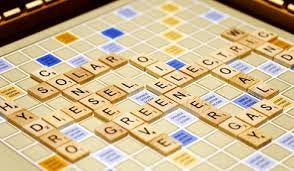Scrabble Was Developed in a Church Basement in Queens
The world-famous word game began in this Queens church.
For years, Scrabble has challenged millions of players with expansive vocabularies. Knowing not only what words to play, but where to play them is key to winning this mentally stimulating board game enjoyed worldwide.
It’s hard to believe it began in a church basement in Queens.
Alfred Butts and the evolution of Scrabble
Scrabble (Dictionary.com defines the word as “to scratch or scrape, as with the claws or hands”) began with architect Alfred Mosher Butts. The Poughkeepsie, New York native was born in 1899.
In 1931, Butts, like many Americans during the Depression, was out of work. As a way to cope with the hard times, he combined board games, number games and letter games into one. He expanded on the game Anagrams by using letters based on their frequency in newspapers and magazines, one hundred in all.
His new game was called Lexiko. The next step was to test it.
Community United Methodist Church
The Community United Methodist Church in Jackson Heights is like many churches of similar faiths in some ways, but unlike them in others. Dedicated in 1923, it has ministries in Chinese, Spanish and Korean, a reflection of the multicultural neighborhood. It also has a long history of LGBT support and activism.
Butts and his wife Nina lived in Jackson Heights. He taught her his new game and played it with her in the beginning. Ironically, she would often beat him.
Over time, they taught it to friends. They played in the CUMC basement.
In Lexiko, players used nine letters at a time instead of seven. The familiar board wasn’t part of the game yet.
Butts marketed Lexiko, but no one was interested in buying it. In 1938 he revised it. Among the changes he made included the addition of the board. He rechristened the game Criss-Crosswords. At one point it was actually called “It.”
Scrabble takes off
In 1948, James Brunot bought the rights to Butts’ game in exchange for a royalty. He modified the rules slightly and called it Scrabble. The rules evolved.
By 1952, Macy’s sold Scrabble. Selchow & Righter, who also licensed Parcheesi, did the same for Scrabble. Two years later, they sold four million copies.
In later years, Coleco bought S&R. Hasbro, in turn, bought Coleco. Hasbro manufactures Scrabble in North America and Mattel does the same in other countries.
The version of Scrabble I owned was the “turntable” edition, in which the game board rotates. Anyone who owns the original will tell you this version is much more convenient. It spares you the trouble of either turning the board sideways or twisting your neck in order to see where the words are on the board. When I play it with my friend Ann, who has the original, we arrange the board sideways, which works for both of us.
NBC created a Scrabble game show in 1984. In time, Scrabble tournaments became a thing.
In 1985, Butts created another game called, um, Alfred’s Other Game. No, really.
It didn’t sell as well.
Butts died in 1993.
Scrabble remembered in Jackson Heights
In 1995, the City of New York, in commemoration of Butts’ achievement, placed a street sign at the corner of 81st Street and 35th Avenue in Jackson Heights, where the CUMC lies.
As you can see from my photo above, the sign, spelling out “35th Avenue,” includes numbers depicting each letter’s value in the game (for a total of fourteen points).
After someone took the sign down in 2008, it was restored in 2011.
————————
Have you played Scrabble?






My favorite game .... great to know about its history.